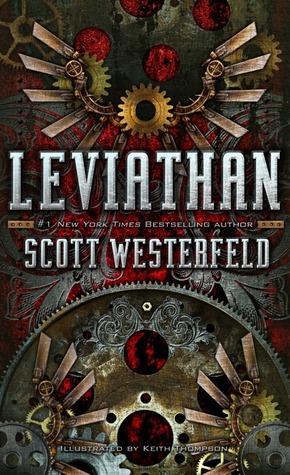A surprisingly okay book, given its awesome premise.
The year is 1914. The assassination of Archduke Ferdinand and his wife Sophie causes the great powers of Europe to lurch towards war. The Central Powers wield clankers, gigantic walking war machines and the Allies use beasites, genetically engineered creatures that have been turned into weapons. AWESOME.
Westerfeld takes those elements and weaves a pretty conventional story with them. Deryn Sharp a plucky girl (conveniently an orphan) disguises herself as a boy to join the British Air Service. Aleksander Hapsburg (conveniently made into an orphan at the start of the book) flees assassins who want to finish the job. Their fates entwine, they put aside their national and technological differences, they become friends. Add a lady scientist and a couple faithful family retainers, and all the story needs to complete the cliché picture is a smart-talking chimney sweep.
But it’s an all right book. The writing is solid. Alek starts out as a brat, but he mellows out over the course of the story. I like how Westerfeld takes the language barrier these two characters would have had and uses it as part of the plot. And the genetically-engineered gasbag creatures that the British use as war machines? They call them Huxleys. That’s brilliant.
But it could’ve been so much more. For one thing, there’s no good reason for the clanker-wielding and beastie-wielding people to hate each other. The two technologies line up on the sides that real life countries did in WWI – even though they would have had to develop the technologies decades before a war that nobody saw coming. I would have loved to see the technologies line up along Catholic/Protestant lines. Or manipulation of the beasties equated with social Darwinism and the rest of the world’s horrified reaction to it.
Characters cussing with “Clart!” and “Barking spiders!” gets old pretty fast. And there’s a war on and nobody besides main characters’ parents ever gets killed.
I still recommend it. Most steampunk works shy away from WWI. This book explores the boundaries of what’s possible with the genre.

